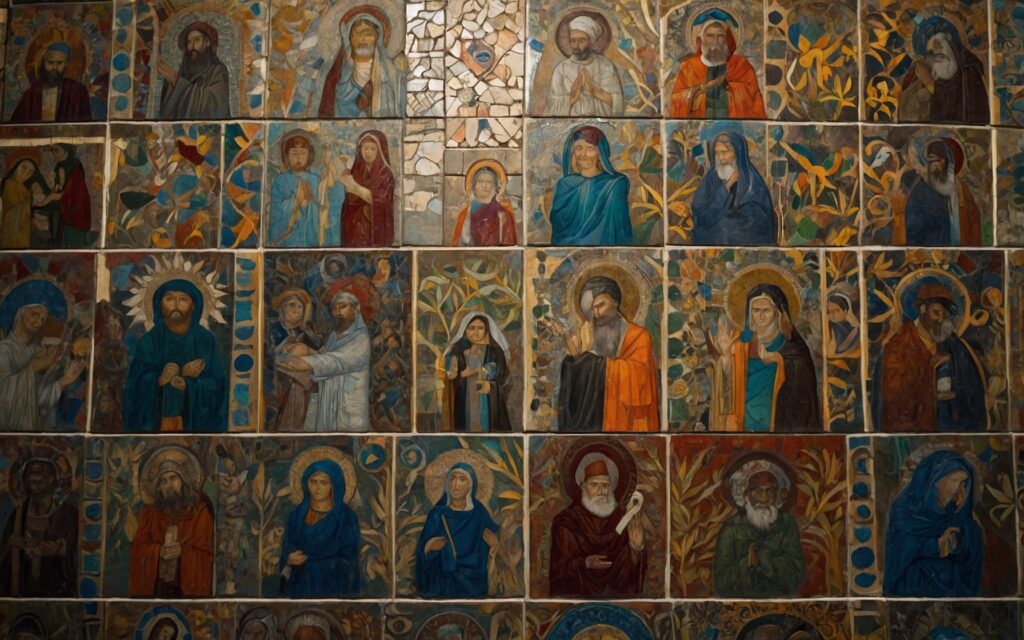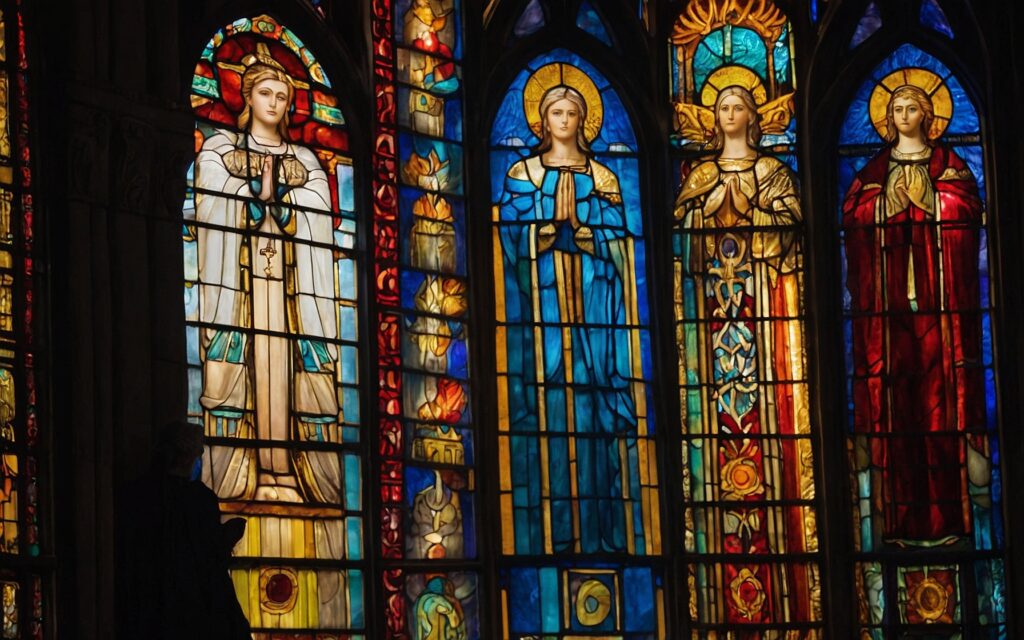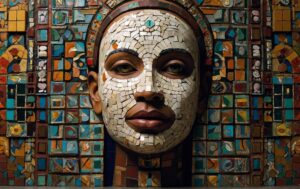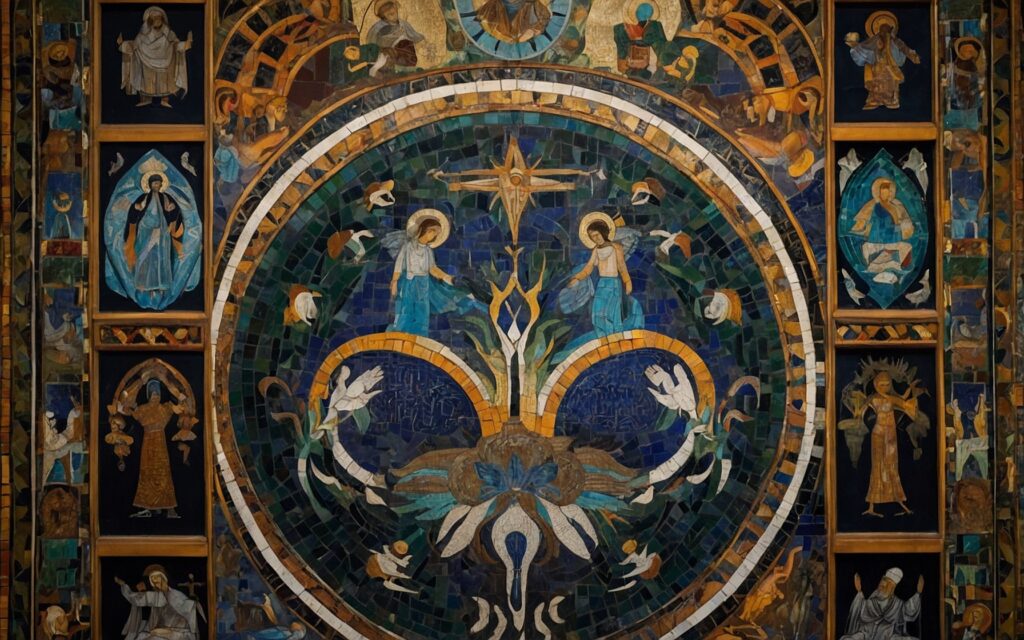Prelude to the Essay
This third and last essay follows from the themes and insights explored in our previous two essays, “The Paradox of Groupishness: Unity and Myopia in Human Nature” and “The Moral Compass: Navigating the Terrain of Human Nature.” In “The Paradox of Groupishness,” we examined the dual nature of our tendency to form groups. This instinct, while fostering unity and cooperation within communities, also has the potential to narrow our perspectives and fuel conflict with those outside our groups. The essay highlighted the challenges of balancing our innate group loyalty with a broader, inclusive understanding of humanity.
“The Moral Compass” took us on an exploratory journey through different moral frameworks, revealing how societies and cultures across the globe navigate the ethical challenges of human existence. We delved into the varying interpretations of what constitutes right and wrong, uncovering the universal and particular aspects of human ethics.
Now, in “The Ethical Mosaic,” we build upon these foundations to explore the rich diversity of moral thought. We navigate the complexities of ethics that arise from the interplay of autonomy, community, and divinity, each contributing unique perspectives to our understanding of morality. This essay aims to synthesize these concepts, providing a comprehensive view of the multifaceted nature of human morality and the intricate ways in which it shapes our world.
The Essay
It was the year 1859 in the annals of philosophical thought when John Stuart Mill articulated the seminal “harm principle,” postulating, “The only purpose for which power can be rightfully exercised over any member of a civilized community, against his will, is to prevent harm to others.” Yet, the complex conception of morality extends beyond the mere notions of harm or fairness. To truly comprehend the variegated landscape of moral thought, one must first survey the landscape of moral diversity, refraining from precipitous judgments on moralities that diverge from our own.
Within this diverse moral universe, there exist three predominant clusters, known as the ethics of autonomy, community, and divinity. Each cluster is rooted in a distinct conceptualization of the human essence.

The ethic of autonomy is predicated on the view that individuals are, at their core, autonomous beings, each with their own array of desires, needs, and preferences. Societies that embrace this ethic cultivate moral concepts such as rights, liberty, and justice, with the aim of fostering an environment where individuals can pursue their personal goals and aspirations in harmony, minimizing interference in each other’s pursuits. This ethos is particularly prevalent in individualistic societies, most notably within the secular West, where the sanctity of personal autonomy is held paramount.
Conversely, the ethic of community is founded on the belief that individuals are, above all, integral components of larger collectives—be they families, tribes, teams, corporations, armies, or nations. These collectives are perceived as entities transcending the sum of their individual members, imbued with a life and purpose of their own. Within this framework, individuals are seen as bearers of roles and responsibilities, integral to the functioning and flourishing of the collective. Societies governed by this ethic nurture moral concepts such as duty, hierarchy, respect, reputation, and patriotism. In such contexts, excessive individualism is often viewed with suspicion, regarded as a threat to the social fabric and cohesion of the collective, upon which the well-being of all is believed to depend.

The ethic of divinity is anchored in the belief that humans are, above all, vessels of a transient nature, each harboring an eternal soul. This perspective transcends the notion of humanity as merely intellectually advanced animals; it elevates our existence to that of a divine creation, demanding a conduct befitting this celestial endowment. In this view, the human body is revered as a temple, a sacred abode, rather than a mere playground for worldly indulgences. Societies that embrace the ethic of divinity cultivate moral concepts steeped in the language of the sacred and the profane. They exalt values such as sanctity, piety, and purity, while admonishing sin, impiety, and pollution. These societies view human existence through a lens that emphasizes the elevation of the soul and the potential degradation of the spirit. Life, in this context, is a journey of maintaining spiritual integrity and upholding the sanctity of the divine within. In such cultures, the notion of personal liberty, as championed in the Western secular tradition, is often perceived with a degree of skepticism, if not outright disapproval. The freedom to pursue individual desires and preferences is seen not as a virtue but as a potential descent into the baser instincts of humanity. The celebration of personal autonomy and self-expression, hallmarks of Western individualism, are contrasted with a moral framework that prioritizes the preservation of spiritual purity and the adherence to divine commandments. The ethic of divinity thus offers a distinct moral compass, one that guides individuals and societies towards a life of reverence, discipline, and spiritual observance.
As we delve deeper into the study of these ethical paradigms, it becomes increasingly clear that the landscape of morality is not monolithic but a rich mosaic of perspectives, each offering a unique lens through which to view the human condition and the social order. This diversity challenges us to broaden our moral horizons, to embrace a more inclusive and empathetic understanding of the myriad ways in which human societies conceive of and navigate the complex realm of right and wrong.

Continuing our journey through the variegated landscape of moral philosophy, we encounter one of the most captivating ideas that has permeated diverse cultures and epochs: the notion that the world we perceive is merely an illusion, akin to a dream. This concept of enlightenment as an awakening from the dreamlike state of existence is not only a recurring theme in numerous philosophies and religions but has also found resonance in the realm of science fiction. It represents a profound questioning of reality and our understanding of it, challenging us to look beyond the apparent to grasp the underlying essence of existence.
In Western cultures, the moral domain tends to be relatively constricted and shows signs of further contraction. Here, morality is predominantly framed within the ethic of autonomy, focusing on issues related to individual harm, oppression, manipulation, or deceit. This narrow moral focus primarily concerns itself with the rights and liberties of individuals, often overlooking broader societal or spiritual considerations.
In stark contrast, most other societies exhibit a more expansive moral universe, where the ethics of community and divinity have long been entrenched and are now increasingly incorporating aspects of the ethic of autonomy. These societies recognize a more holistic approach to morality, one that values the individual’s role within the larger collective and acknowledges the spiritual dimensions of human existence. The integration of the ethic of autonomy into these broader moral frameworks represents a dynamic evolution of moral thought, reflecting a growing recognition of the importance of individual rights and freedoms within a communal and spiritual context.
However, the adherence to specific moral templates, while fostering a sense of unity and identity within a group, can simultaneously obscure the coherence or even the existence of alternative moral paradigms. This often leads to a myopic view of morality, making it challenging for individuals to acknowledge the possibility of multiple moral truths or the validity of different frameworks for judging actions and organizing societies.

To fully comprehend the roots of our moral divisions, it is imperative to embark on an exploration that transcends our shared evolutionary heritage. We must delve into the historical context of each culture and the nuances of individual socialization within these cultural perspectives. This exploration requires us to navigate the intersections of biology, history, and sociology, unraveling the complex interplay between our inborn moral instincts and the diverse cultural landscapes that shape our ethical understanding. Only through this comprehensive examination can we hope to uncover the myriad ways in which human societies conceptualize and negotiate moral territory, and perhaps, in doing so, find pathways to greater mutual understanding and respect.
In the contemporary era, secular perspectives often frame the Enlightenment as a titanic clash between two formidable adversaries. On one flank stands science, armed with its principal weapon of reason, and on the opposing side looms religion, shielded by the ancient armor of superstition. This portrayal simplifies a far more complicated historical and intellectual struggle, one that unfolded in a multifaceted battleground of ideas.
In the time of David Hume, the landscape of intellectual conflict was even more complex than the dichotomy often depicted today. Enlightenment thinkers, united in their dismissal of divine revelation as the fountainhead of moral order, were nevertheless deeply divided on the nature of morality itself. There were those, following in the footsteps of Plato, who believed that morality emanated from the essence of rationality, a universal truth accessible through reasoned deduction. Others advanced that morality was an intrinsic part of human nature, akin to language or taste, requiring empirical observation and study to be fully understood.

Hume’s contributions to the discourse on morality epitomize the quintessential Enlightenment endeavor: a foray into a realm traditionally dominated by religious thought, and approached with the methodologies and perspectives of the nascent natural sciences. Hume’s insights into morality were groundbreaking. By the time of his passing in 1776, he had established a formidable foundation for what he termed “moral science,” a foundation that, in my estimation, has been largely vindicated by subsequent research in the modern era.

I am firmly convinced that any attempt to comprehend the complexities of morality without considering the role of evolution is incomplete. There is a profound interconnectedness between the virtues and vices that permeate human societies and the well-established theories of evolutionary biology. To unravel the complex fabric of moral thought and behavior, one must consider not only the philosophical and cultural dimensions but also the biological underpinnings that have shaped our moral instincts and capacities. This holistic approach, blending the insights of philosophy, sociology, and evolutionary science, offers a more nuanced and comprehensive understanding of morality, one that acknowledges its deep roots in our evolutionary past while also recognizing the diverse cultural landscapes that continue to shape its expression in the human experience.







